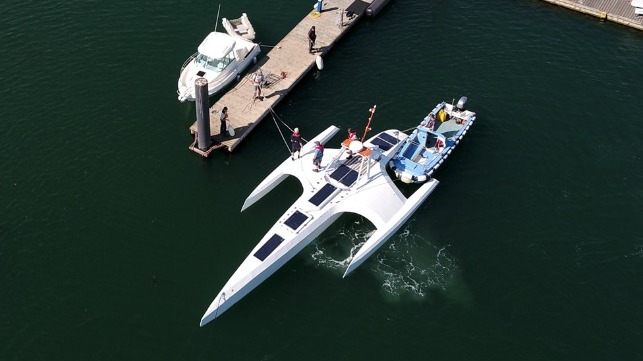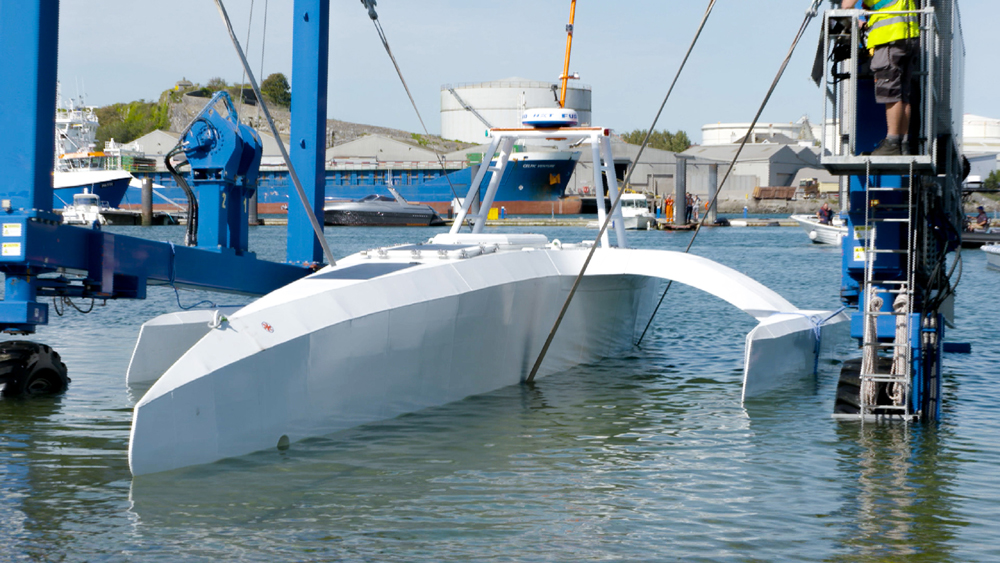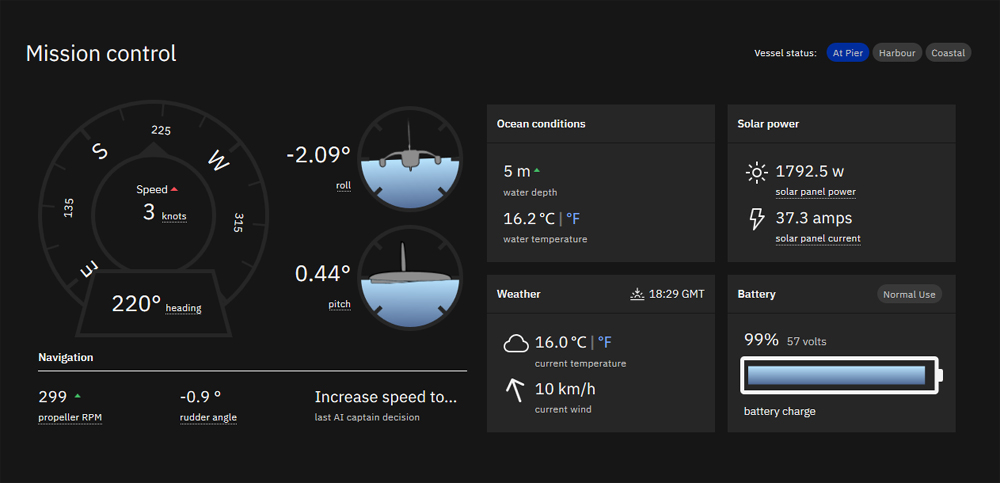AI and Solar Powered Marine Research Vessel Mayflower Launching

The Mayflower Autonomous Ship (MAS), an AI and solar-powered marine research vessel which will traverse oceans gathering vital environmental data, was lifted into the waters off the coast of Plymouth, England. Developed for the non-profit ocean research organization ProMare, in partnership with IBM and a partnership of scientific organizations, is preparing to make one of the world's first autonomous transatlantic voyages.
After two years of design, construction, and training of its AI models, the new fully-autonomous trimaran will be officially launched on September 16. The hull of the Mayflower was built and outfitted in Gdansk, Poland, before being transported to Plymouth, UK. The vessel measures 15 meters in length and weights five tons. It will have a top speed of 20 knots.

Mayflower being lowered into the water - courtesy of IBM
Designed to provide a safe, flexible, and cost-effective way of gathering data about the ocean, the new-generation Mayflower promises to transform oceanography by working in tandem with scientists and other autonomous vessels to help understand critical issues such as global warming, micro-plastic pollution, and marine mammal conservation.
The Mayflower, named in honor of her historic predecessor that carried settled across the Atlantic to the new world, features an AI Captain built by ProMare and IBM developers. The AI system will give the MAS the ability to sense, think and make decisions at sea with no human captain or onboard crew. The new class of marine AI is underpinned by IBM's latest advanced edge computing systems, automation software, computer vision technology, and Red Hat Open Source software.
"Able to scan the horizon for possible hazards, make informed decisions and change its course based on a fusion of live data, the Mayflower Autonomous Ship has more in common with a modern bank than its 17th-century namesake," said Andy Stanford-Clark, Chief Technology Officer, IBM UK & Ireland. "With its ability to keep running in the face of the most challenging conditions, this small ship is a microcosm for every aspiring 21st-century business."
To enable followers around the world to stay updated with MAS as it undertakes its various missions, IBM and ProMare also launched a new interactive web portal. The MAS400 portal is designed to provide real-time updates about the ship's location, environmental conditions, and data from its various research projects. Live weather data will be streamed from The Weather Company, as MAS is receiving forecast data and insight from the new IBM Weather Operations Center.

Portion of the online dashboard that permits viewers to monitor the Mayflower's operations - screen shot for web
The portal even features a seven-armed, stowaway octopus chatbot called Artie, who claims to be hitching a ride on the ship. Powered by IBM Watson Assistant technology and created in partnership with European start-up Chatbotbay, Artie has been trained to provide information about MAS and its adventures in a lively, and accessible format.

that matters most
Get the latest maritime news delivered to your inbox daily.
"MAS400.com is one of the most advanced ocean mission web portals ever built," says Fredrik Soreide, Scientific Director of the Mayflower Autonomous Ship project and Board Member of ProMare. "Protecting the ocean depends on our ability to engage the public in important matters affecting its health. This MAS400 portal is designed to do exactly that and tell people where the ship is, what speed it's traveling at, what conditions it's operating in, and what science we are conducting. Users can even help Artie the Octopus fish out surgical masks, cigarette butts, and other increasingly common forms of ocean litter from a virtual ocean of facts and data."
MAS will spend the next six months in sea trials and undertake various research missions and voyages before attempting to cross the Atlantic in the spring of 2021. MAS's transatlantic voyage will be based on a similar route and pioneering spirit to the 1620 Mayflower which made the same crossing 400 years ago.
